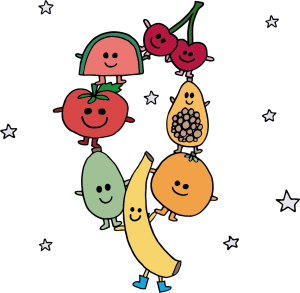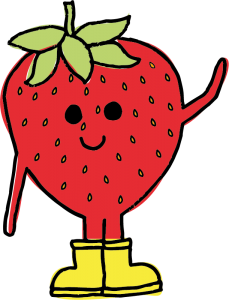Children are growing at a rapid rate from the minute they are born until their teenage years, when growth rate slows down. It takes an extraordinary amount of energy for the body to continue to grow, and it cannot do it without the help of essential vitamins and minerals. Read on to find out what science says are the most important vitamins and minerals during childhood.
Minerals:
CALCIUM
Calcium is an important mineral needed to form our teeth and bones. It helps to build up bone reserves for later life – this vitally prepares our bones for when bone density decreases with age. Did you know that calcium also assists muscle function, much like potassium (link to Tassi)? And, calcium also plays an important role in our nervous system.
Healthy sources of calcium include: dairy products, fortified foods, salmon, dark green leafy vegetables like kale, brazil nuts, cheese, yoghurt, chickpeas, milk, and even tinned sardines.
Allergic to dairy products? No problem! One of the most underrated vegetables that helps to strengthen our bones is the onion. In a study carried out by the University of Bern, Switzerland, evidence found that only one gram of onion per day was sufficient to strengthen the human skeleton (https://www.sciencedaily.com/releases/2005/04/050411112150.htm). If you are interested in other alternative sources of calcium than milk, visit here: https://www.today.com/food/foods-more-calcium-glass-milk-t110786
IRON
Iron is a mineral that assists red blood cells in carrying oxygen around the body, and prevents us from becoming anaemic. A typical symptom of anaemia is extreme fatigue, and iron helps to combat this.
Red meat is a common source of high iron content, but other foods high in iron include dark green leafy vegetables like spinach, different types of beans, nuts and legumes, and also dried fruit.
Did you know that carrots are a source of both calcium and iron? Watch out for our next book to learn more!

Vitamins:
B VITAMINS
B vitamins including – most prominently – B12 help to give us energy and assist with our metabolism. These B-vits are also known for contributing to normal cell growth and development, and for ensuring we have a healthy nervous system.
Like iron, animal by-products such as meat, fish, poultry and eggs are high in the B vitamins, as well as cheese. If you are trying to avoid animal-based products, soya milk and bananas are also known for containing B vitamins.
VITAMIN D
Vitamin D teams up with calcium to help build stronger bones and teeth and keep our joints healthy. Oily fish like sardines, salmon and mackerel contain Vitamin D. In meat-free produce, it can be found in eggs, wheatgerm and seeds, and fortified cereals.

VITAMIN E
Vitamin E is a sort of super vitamin! Not only does it have a positive effect on our skin, hair and nails, but it is also integral to protecting our bodies. It helps to keep our immune system strong and prevent free radical attack due to the antioxidants it contains. In addition to that, it has anti-inflammatory properties, aids with healing, and even helps to level out our hormones! For these reasons, Vitamin E is one of the most important vitamins that you should ensure your child is getting plenty of to help keep them healthy.
Vitamin E is widely found in nuts and seeds such as hazelnuts, almonds and sunflower seeds (as well as their oil). Nut allergy? No problem! Vitamin E is also in a variety of vegetables like carrots, tomatoes and spinach.
Did you know that strawberries contain both Vitamin E and iron? To learn more about the amazing properties of strawberries, purchase your copy of Cece the Strawberry now!
Fruit and vegetables are an important and rich source of vitamins and minerals, which is why it’s so essential to each a variety each day. Eat the rainbow! The best way to ensure that your child is getting the necessary vitamins and minerals is to give them as many different coloured fruit and vegetables as you can each day. How many different types of fruit and vegetable should children eat each day? Click here to read our previous blog post about the NHS guidelines.
